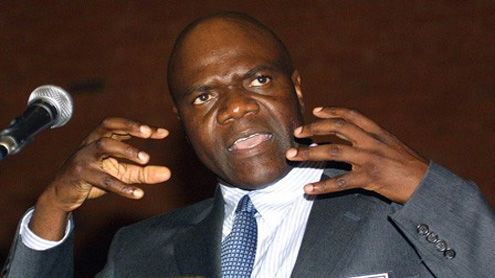How Zimbabwe can pull herself out of the economic messA Story by Ittai Bryan Matthew Nyamawuya-MasangaA look at the presentation by Dr Stefan Dercon on the key drivers of development for Africa and ZimbabweAlthough Zimbabwe has been on an economic rebound since 2008, we seem to be losing steam once again. Companies are either scaling down or closing, forcing many back onto the streets to fend for their living. The labour situation in Zimbabwe is at its worst since independence with employers (both private and parastatals) firing employees at will citing a loophole in the labour act. The question we could be asking is: How did we find ourselves in this situation? We will turn retrospective and it could take us years before those that messed up admitted their mistakes (if they ever will). Instead, let us ask: How will we get ourselves out of this quagmire? What practical action can we take besides the ‘un-implementable’ ZimASSET? Here are key drivers to inclusive growth that can get Zimbabwe back on her feet as presented by Dr Stefan Dercon. Inclusive growth Inclusive growth can be summarised as growth for all. It is when all sectors and all demographics get an appropriate share of the growing cake. The focus is on reallocation of resources. Starting with the most productive to the least productive activities in each sector. “The poor have but their labour to sell,” Karl Marx. Inclusive growth therefore entails creation of job opportunities for the masses. In Zimbabwe’s cases, this is an urgent matter. Growth in industry and expanding job opportunities absorb labour from informal and rural communities providing them with income security, which allows them to plan and pursue bigger dreams.  Functioning social sector systems and basic protection Social sector systems refer to health, education and social protection. These will not drive growth per se but will fuel it and help with inclusion. Our literacy rate is above 90% and primary education completion rate hovers around that same percentage but tertiary education enrolment remains unsustainably low. This has effects on the quality of the labour force. Due to limited skills programmes, we have sectors where there is work force shortage e.g. health then we have sectors where supply is outstripping demand e.g. manufacturing. Dr Dercon attributed the disparities to imbalances to budget allocation to the different parts of the economy and an unsustainably high wage bill leaving little for social service development. Effective state An effective state was cited as key in driving inclusive growth as it facilitates and reallocates resources in a more sustainable way. Several state types that exist in Africa. They range from tiger states designed to extract and plunder from the people and the economy just as a tiger fish lives on smaller fish to failing states characterised by violence conflicts with people living on scraps. However, Zimbabwe needs state builders who pursue modernist and developmentalist ideologies anchored on strong structures and strong leadership. The leaders must derive their mandate from the people and be ready to effect real development. Politics aligned with growth  This entails politics where leaders and elites are committed to growth and poverty reduction. The political commitment must go beyond elections whether state-led or market-led. The political environment must foster commitment devices i.e. confidence and trust. It is the confidence that lures foreign direct investment. This can be achieved by tying the hands of policy makers e.g. making the central bank and other government arms more independent. Also of importance is clarity in the case of indigenisation and land reform, transparency and accountability when it comes to utilisation of government resources. There must be systemic implementation of agreements and courts rulings. In summary, what Zimbabwe needs is a wholesale of changes starting with a new people centred vision, new pro-poor policies (and ideas) coupled with renewed energy to effectively implement and honour our agreements with partners. Dr Stefan Dercon is Chief Economist of The United Kingdom’s Department for International Development (DFID).
© 2015 Ittai Bryan Matthew Nyamawuya-Masanga |
Stats
730 Views
Added on August 14, 2015 Last Updated on August 14, 2015 Tags: DFID, UK in Zimbabwe, change, labour act, job cuts, zimVendors, retrenchments AuthorIttai Bryan Matthew Nyamawuya-MasangaHarare, Harare, ZimbabweAboutWriter Life Coach Design Engineer more..Writing |

 Flag Writing
Flag Writing